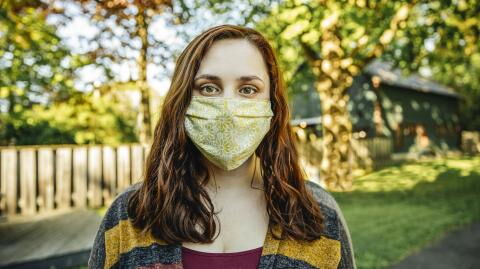The coronavirus is one of the most infectious illnesses of the 21st century. And like most highly infectious illnesses, one of the vectors is through cross-species transmission. Originally thought to have come from the pangolin, current thinking places the patient zero of the animal kingdom to be a species of bat.
Discover our latest podcast
A species-jumping pathogen
Yet, the virus didn't stop there. It has also be found to infect a variety of domesticated species, such as, famously, minks, and yes, also cats and dogs, according to experts from the University of East Anglia, the Earlham Institute and University of Minnesota.
In the journal Virulence, these experts stated that the risk came from the virus evolving and mutating in animal species, and the altered strains then being passed on to humans, starting the whole pandemic all over again.
Continued virus evolution in reservoir animal hosts, followed by spill-back events into susceptible human hosts, poses a significant long-term risk to public health.
So, even as countries are mobilising to vaccinate as much of their population as possible, the potential for continuation of the pandemic conditions might be brewing under our noses.
Measures must be taken
In 2020, the Danish government infamously culled millions of farmed minks, after evidence emerged that several hundred cases of human infections had been linked to these animals.
To prevent such a harsh measure being applied to millions of beloved family companions, it is likely to become necessary that vaccines be developed specifically for those affected species. Although ‘it’s not an obvious risk yet.’
It is not unthinkable that vaccination of some domesticated animal species might... be necessary to curb the spread of the infection. SARS-CoV-2 can infect a wide range of host species, [...] the vaccination of domesticated animals might be required to halt further virus evolution and spillback events.
The team has called on governments to vigorously encourage population-side prevention measures such as masks, social distancing and individual protecting measures.
Vaccination against a viral pathogen with such high prevalence globally is without precedent and we, therefore, have found ourselves in uncharted waters.















